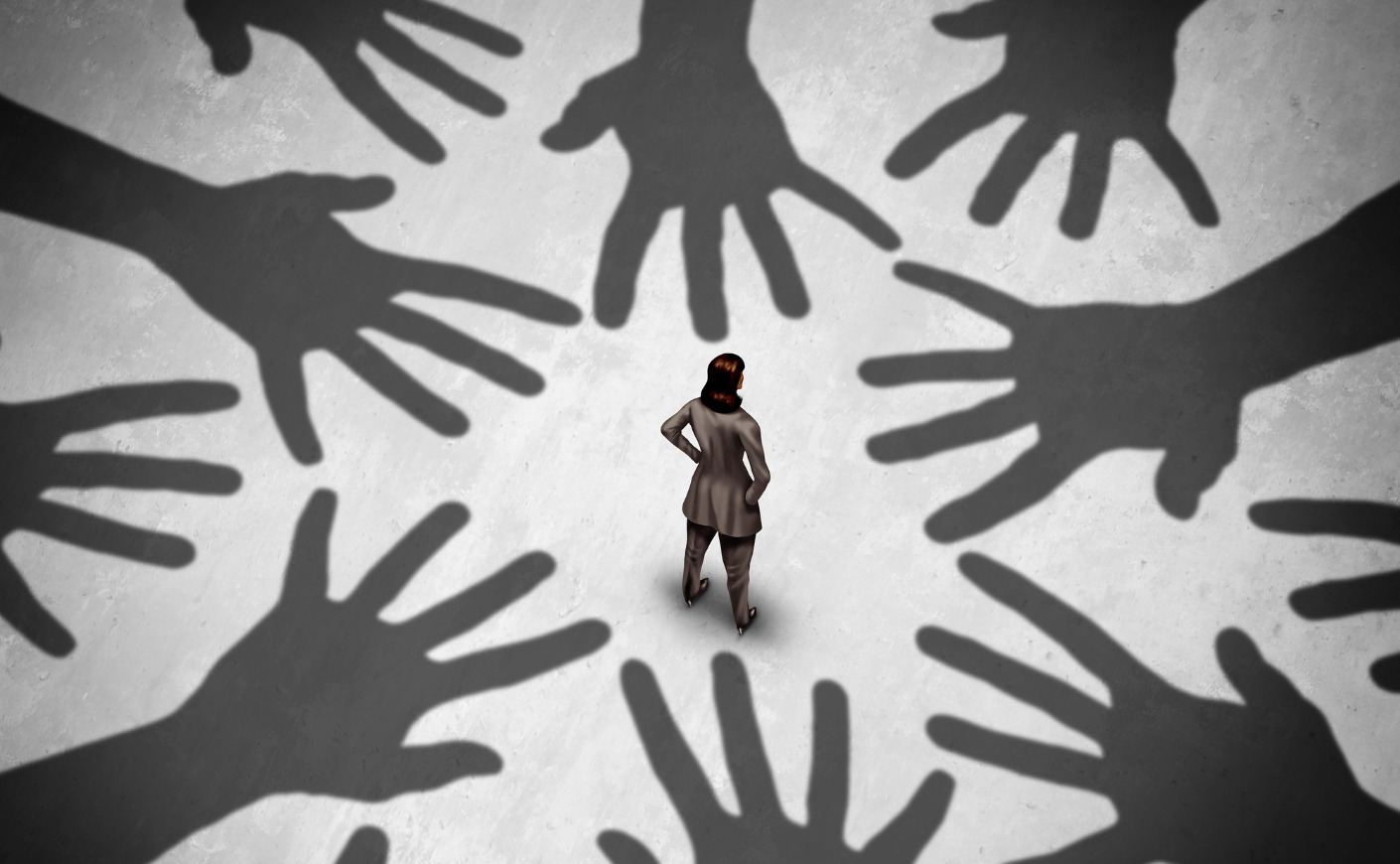When we think of sexual misconduct or serial abusers, the men who often come to mind are those with immense power or wealth — men like Harvey Weinstein or Jeffrey Epstein or Bill Cosby, who used their rank or prestige to prey on the women beneath them.
But a recent study conducted by researchers at Vanderbilt University recasts that narrative. Jessica Kennedy, Ph.D., a professor at Vanderbilt’s Owen Graduate School of Management and a co-author of the study, found that sexual harassment is actually less likely to come from people in positions of power. The more likely perpetrators are individuals (more often men) much further down the ladder, who have a “desire for power,” Dr. Kennedy says.
“When they have that desire, that’s when we see the sexual harassment comes out,” she tells us. “They’re probably deeply motivated by this desire for power, and then somehow it seems like they’ve come to identify as the type of person who uses sexuality to get the things that they want.”
Dr. Kennedy explains the study in depth in the video below:
Their study also shows that, in many cases, corporate leaders or other high-ranking figures “feel more responsible for other people,” which leads them to protect and guide those working under them, Dr. Kennedy says.
So contrary to the popularly held belief, this study suggests it's not power that corrupts. “There are actually a lot of positive effects of power itself,” she says.
The culture promoted within the workplace and its management structure can also foster this type of misconduct. Especially in highly competitive environments, it's commonplace for employees to get away with bad behavior as long as they’re meeting their monthly quotas, Dr. Kennedy says.
“People in high power roles are certainly under a lot of pressure, and so organizations might try to let them off the hook in certain ways when they’re producing results, but that’s why we see all this bad behavior,” she explains. “We really need to think about what our values are and try to institute cultures that value respect for other people and value connection.”
There’s certainly a long way to go toward stamping out sexual misconduct in the workplace and elsewhere, but one encouraging development Dr. Kennedy has noticed within the last few years is a shift in how the culture has come to think about masculinity. There are still plenty of men who have been socialized to believe that “being a man means dominating other people,” she says. But more and more, people are questioning that.
“People are starting to think about what types of masculinity are good for society and what types are toxic,” she tells us, adding that it’s something we should all think about “as we socialize our sons and brothers and classmates and husbands about what being a man is.”









